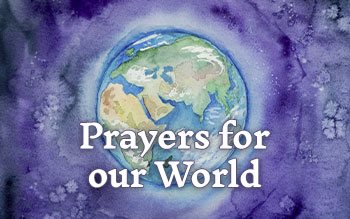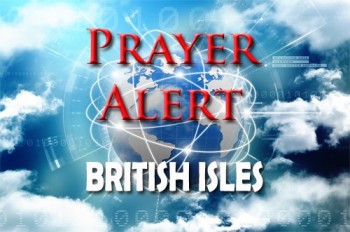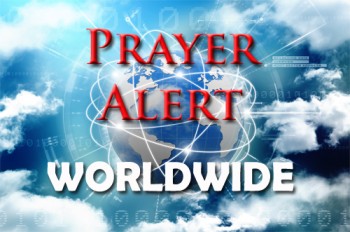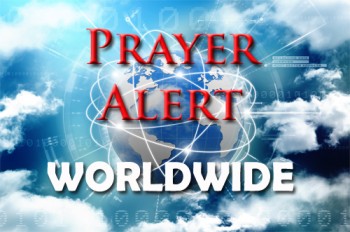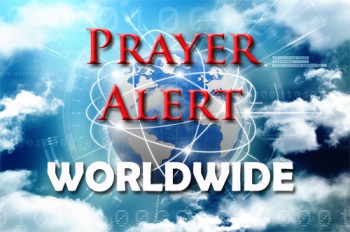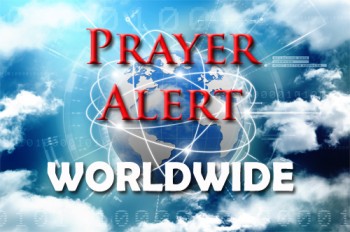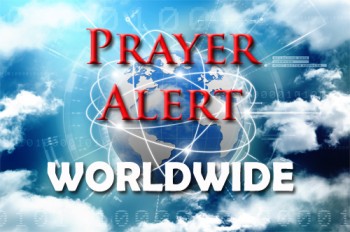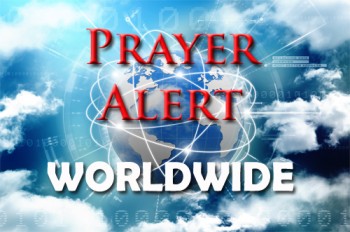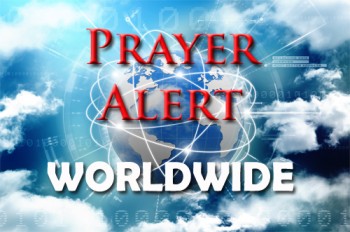Displaying items by tag: Middle East
Syria: Top UN officials report ‘shocking’ scale of suffering
The UN chief called on the world to step up “financial, humanitarian and political commitments”, to help end nearly a decade of brutal conflict and suffering across Syria, in a video message delivered to the fourth Brussels Donor Conference on Tuesday.
“After nearly a decade of war and economic hardship, the scale of suffering remains shocking”, said Secretary-General António Guterres.
The conference received pledges of $5.5 billion in funding, to support humanitarian, resilience and development activities in 2020, and $2.2 billion for crisis response in 2021 and beyond. In addition, multilateral development banks and bilateral donors pledged up to $6.7 billion in loans.
Hundreds of thousands of people have been killed; half the pre-war population, or over 12 million Syrians, are displaced, including 5.6 million who fled the country; millions are going hungry or are malnourished; and 90 per cent of the population lives in poverty.
And all of this is being further compounded by the coronavirus.
UN in solidarity
Currently over 11 million Syrians need emergency assistance just to survive, many of whom rely solely on the UN and its humanitarian partners. “We provide life-saving food, healthcare, sanitation facilities, education and protection services, to millions of Syrians every month”, the UN chief said. “We help to address their trauma and provide legal advice so they can start to rebuild their lives” – all of which depends on “generous” donor support.
Since only “a political solution can end the suffering in Syria”, he urged “all those with influence” to help Syrians find common ground.
Downward spiral
Emergency Relief Coordinator Mark Lowcock noted that the Syrian crisis is “approaching the length of the combination” of the two World Wars, as it wreaks havoc and acute economic strain across the region.
He painted a gloomy picture of the Syrian economy in “a dramatic downturn” with prices of essential food, medicines and fuel “soaring” as the Syrian pound “fell to a record low against the US dollar this month”.
The UN official cited estimates from the World Food Programme (WFP) in revealing that an “unprecedented level” of 9.3 million people there are food insecure and almost half a million children suffer from stunting, a consequence of malnutrition.
“And now we have COVOID-19, which has the potential to cause much more suffering and loss, with preparations to tackle it inside Syria wholly inadequate in the light of the degrading of the health system through the years of crisis”, added the humanitarian coordinator.
Mr. Lowcock elaborated on how the UN was supporting the situation on the ground, including by providing food assistance to more than 3.2 million people; nutrition support for half a million children; critical water and sanitation for 1.3 million people; and four million medical procedures.
“The humanitarian assistance we provide across Syria and in the region depends on the generous support of the States and constituencies represented here”, he flagged.
Stolen educations
Noting that “one of the most tragic consequences of the horror story of the last decade has been the robbing of millions of children of their right to a decent education”, he foresaw major long-term consequences, “for more than fifty years”.
“One of the major challenges is funding”, Mr. Lowcock said and asked donors to prioritize pledges to the education of these children, saying it is “in your own interests, but most importantly in theirs”.
‘Unlocking’ a political process
Syrian Special Envoy Geir O. Pedersen reiterated his call for “a nationwide ceasefire”, along with the need to be vigilant about COVID-19, the importance of resolution 2254, which calls for a ceasefire and political settlement, and the challenges posed by groups listed as terrorists by the Security Council.
Moreover, he again appealed for the Syrian Government and other parties to “carry out large-scale, unilateral releases of detainees and abductees, and meaningful actions on the missing persons”. Mr. Pedersen expressed his hope that the Syrian-led, Syrian-owned Constitutional Committee facilitated by the UN in Geneva “will be able to meet on a regular basis throughout the rest of the year”.
Acknowledging that a constitutional discussion would not address the full range of dire realities Syrians grapple with, he maintained that the Committee’s work can be “a door-opener to unlock a broader political process”
Pray: For a negotiated ceasefire and a political settlement.
Pray: With thanks for the pledges of loans and donations to support the humanitarian aid, education and covid-19 relief efforts. May further funds be released to scale up all of these initiatives.
Pray: for the organisations delivering the aid and medical assistance, for protection, good health and free access to those who need their help.
Pray: For the many people who have been displaced by this war, that they will find safe refuge amidst the challenges and hardships.
Pray: for the UN and countries with influence, that they will bring about lasting peace to Syria and the region.
Churches ask Government to intervene in West Bank
Two bishops have asked the Government to help prevent the annexation of the West Bank. Israel is preparing to annex parts from 1 July, but the Catholic bishop of Clifton and the Anglican bishop of Southwark said the annexation plans were not supported by local communities and the situation is rapidly deteriorating. ‘Annexation would only bring more conflict, suffering and division’, they said. Their comments follow strong criticism of the plans from the Archbishop of Canterbury and Cardinal Vincent Nichols. They said in letters to the Israeli ambassador and prime minister that they unambiguously support the fundamental right of Israel's citizens to live in peace and safety and ‘pray for peace and flourishing for our brothers and sisters in Christ in Israel and Palestine and all living in the Holy Land.’
Lebanon: growing crisis
Vincent al-Boustani’s local council runs a tight ship. Staff and volunteers conduct 24/7 patrols, cameras monitor the streets, and motorcycles are banned after 9 pm. A policeman stands guard to provide security amid rising crime as the economy collapses and the crisis pushes more Lebanese into poverty. Protesters are targeting the ruling elite and banks that have frozen depositors out of their savings. Some banks have erected steel barriers to shield against attack, as the economy crumbles and fear of crime increases. Boustani believes things will get even worse, saying ‘That’s why we must remain alert, aware of danger as we go towards the unknown.’ This financial crisis has developed in Lebanon since 2019, more and more families can’t cope as the currency collapses and the state offers little or no help. Pray for God's peace to fill the streets as Lebanon faces enormous threats to stability.
Syria: urgent need to repatriate and rehabilitate IS children
The Centre for Global Policy (CGP) has called on European governments to intervene urgently on behalf of 750 children of EU member states citizenship who are held in IS detention camps in Syria. CGP’s latest report said that urgent intervention and support was needed. The report, entitled ‘The children of IS detainees - Europe's dilemma’, was based on research that focused on two camps in northeast Syria where 70,000 women and children are being detained. At least 12,000 of the detainees are foreign nationals. While public opinion in EU member states is strongly opposed to repatriating IS members and affiliates, the report emphasised, ‘Leaving them in these camps will not keep anyone safe’.
Sea of Galilee's rise 'by the grace of God'
One piece of good news is that for the first time in twenty years an unusually rainy winter has nearly filled the Sea of Galilee. Israelis consider rainy winters to be a blessing. ‘We are very excited because of this. It is very good for all of us around the Sea of Galilee: for agriculture, for farmers, for tourists, for everybody’, said the head of Kinneret Urban Union. After five years of drought, it has risen 18 feet in 2019 and 2020. The rise has been remarkable. Israelis are excited about it. ‘I am thrilled. We still treat it like our lifeline even though we do not drink the water any more. When I see a full lake, I want to sing, I want to cry out with joy. I am amazed by the grace of God,’ said tour guide Rachela Dotan.
Palestine: women and coronavirus
A woman leads the fight against coronavirus in the Palestinian territories, while at the same time it has brought more violence and suffering to women. Umm Iyad travels to the northern West Bank to follow up on emergency procedures as part of the efforts to stem the outbreak of coronavirus. She has been heading the village council since 2017, and is now head of the emergency committee. She is also working on a community initiative to cultivate land and grow vegetables to achieve self-sufficiency for the villagers. However, during lockdown, statistics showed social workers across the Palestinian governorates have been dealing with increased victims of domestic violence. 40% of women have been subjected to emotional and mental abuse, and 31% to physical abuse. 60% of the victims have fled their houses, and 21% attempted suicide.
Israel: God TV threatened
Israel is threatening to shut down a Hebrew-language evangelical channel aiming ‘to take the gospel of Jesus into 700,000 Jewish households’. Under its newly issued license, Shelanu TV, an arm of God TV, is now prohibited from broadcasting content that subjects viewers to ‘undue influence.’ It is illegal to proselytise under-18s without gaining parental consent. The Likud party’s communications minister said that they will not allow missionary channels to operate in Israel under any circumstance, and has launched a comprehensive investigation to determine that no channel is violating the terms of its license: ‘if indeed this channel is engaged in missionary activities, it will be taken down immediately.’ Ron Kantor, Shelanu’s regional director, said his network had been entirely transparent during the licensing process. ‘I immediately asked them, 'Can we broadcast in Hebrew?' And the answer was an emphatic yes. We were told many times that laws have changed and there was no issue with our programming.’
Gaza: an economic boost
Manufacturing clothes was once a pillar of Gaza’s economy, with 900 factories employing 36,000 Palestinians. But the industry collapsed in 2007 when Hamas seized control of Gaza and Israel banned the export of clothing from Gaza to Israel or the Israeli-occupied West Bank. Ziad Qassem’s 25 years as a tailor seemed worthless in the cruel blockade: unemployed, debt piling up, worried how he would provide for his wife and five children. Coronavirus came to the rescue. Demand for masks and protective gear soared worldwide. Gaza garment factories are flooded with new orders from Israel, ordinarily seen by much of Gaza’s Palestinian population as the enemy. Israeli rights groups have called for the permanent easing of restrictions that govern entry in and out of the Gaza enclave, home to some two million people, so that the economy can function more normally even after the pandemic. See
Lebanon: 'night of the Molotov'
On 29 April, banks across Lebanon were torched and vandalised by hundreds of demonstrators during the second night of protests over their currency recently losing 50% in value. The largest and most violent protests were in Tripoli, the second-largest, and poorest, city. One 26-year-old protester died from army gunshot wounds and many were hospitalised from heavy-handed responses to protests. Human Rights Watch called for transparent investigations into the death. Poverty has worsened during the nationwide pandemic lockdown. The social affairs minister estimated that 75% of the population require aid in a country of about six million - but that aid has been meagre and slow to come. Massive anti-government protests began in October but paused during lockdown. Now they are angrier and more desperate. On 30 April the Daily Star reported 23 soldiers wounded overnight in Tripoli and Sidon.
Syria: fragile ceasefire and coronavirus
A ceasefire few expected to last is holding in Idlib, for now - but the last rebel-held area in northwest Syria is bracing itself for the expected onslaught of the deadly coronavirus. The 5 March truce between Russia and Turkey halted a dangerous escalation of nine punishing years of war in Syria, but Idlib's breathing space is fraught with fear of the new enemy. The health system has been destroyed by bombing by Russian and Syrian warplanes. Nearly a million displaced people, sheltering inside flimsy tents, or on open ground, have few defences against the powerful Covid-19. ‘There's a humanitarian and political imperative for a complete, immediate nationwide ceasefire throughout Syria’, said the UN special envoy, in his recent briefing to the UN Security Council.
